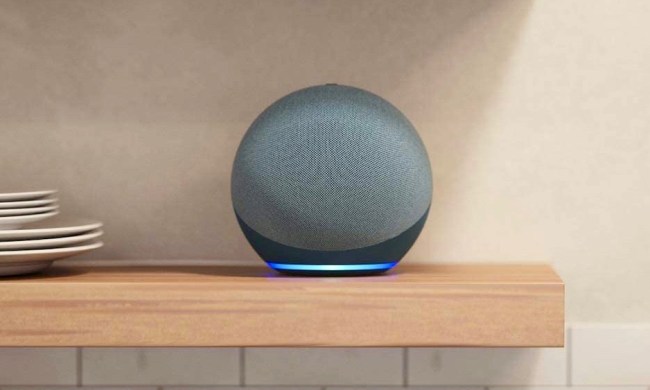
Google is going across the pond. At Mobile World Congress in Barcelona, Spain, the tech giant confirmed it would launch Google Home, its smart speaker and Amazon Echo competitor, in the U.K. before the end of June. While the assistant made its debut in the U.S. in October, it has been locked within a single marketplace for most of its life — now, all that is going to change.
We're in the Home stretch; Google Home is coming to the UK soon, stay tuned for more pic.twitter.com/P6uL0wqly9
— Google UK (@GoogleUK) February 28, 2017
While Amazon’s Alexa has been around for quite a bit longer than Google Home and supports many of the same functionalities (answering your questions, obeying your commands, and the like), the Google device does have one key difference — you can ask follow-up questions as you would in a real conversation, instead of having to preface each query with a command word. Moreover, Home makes use of Google Search, which sort of means you have the whole of the internet at your voice’s command (Amazon, on the other hand, uses Microsoft’s Bing and Wikipedia to provide you with information).
“The trick … in these products is trying to really understand what people are asking for,” Google’s hardware chief Rick Osterloh told the BBC. “We’ve got so much history with people using our search products and people using voice queries through Android phones … that we’re able to much better answer these types of questions. All this data really helps us making sure we understand what the user is looking for.”
Of course, for now, Amazon has a leg up over Google when it comes to its smart assistants. Alexa has 10,000 skills, and Google Home has somewhere in the 100 range. Also, the Amazon Echo has been available in the U.K. since September. But don’t count Google out. “In the short term, Amazon has the better chance because it has developed a large platform connected to many other smart products in the sector,” Annette Zimmermann from the Gartner tech consultancy told the BBC. “But in the long term, given that Google has a lot of capacity round its search capabilities and is investing deeply into artificial intelligence, it probably has the better prospects.”


